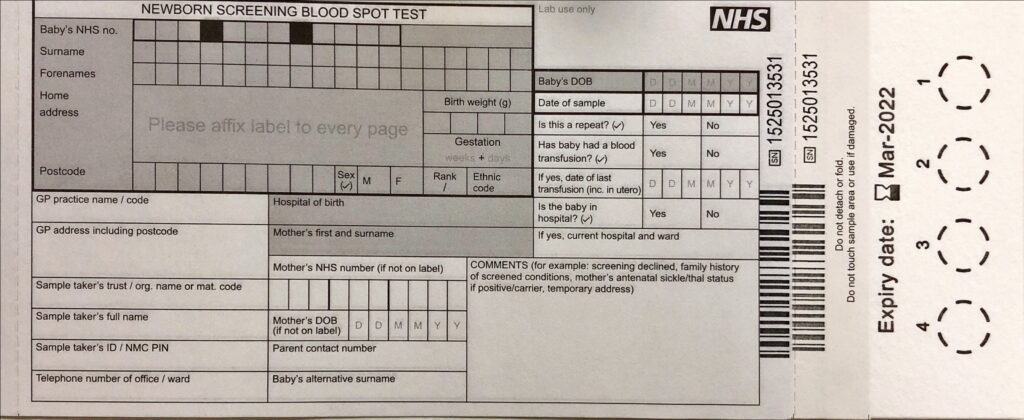
Abnormal acylcarnitines accumulate in a variety of inborn errors of metabolism, particularly in fat oxidation defects and certain organic acidurias. Presenting features may include unexplained hypoglycaemia (usually hypoketotic hypoglycaemia), liver disease, metabolic acidosis, cardiomyopathy and muscle weakness.
Tube
Bloodspots on a neonatal screening card
ID
29919
Availability
Weekdays
Turn Around
18 days. Please contact the Biochemical Genetics laboratory for enquiries regarding urgent samples (0113 2064256).
Send to
Transport: Samples can be stored at room temperature during transport and prior to analysis.
Address:
Specialist Laboratory Medicine
Block 46
St James hospital
Beckett Street
Leeds
LS9 7TF
Advice
British Inherited Metabolic Diseases Group
Contact
For further details please contact Leeds Pathology customer services: [email protected].
Collection Con
Minimum volume: 2 blood spots
Instructions for lab:
If storage required store dried blood spot card at room temperature. Whole blood samples (EDTA or heparin) can be spotted on to a dried blood spot card in the Biochemical Genetics lab. Samples are stable for 4 days prior to spotting.
Please discuss with Biochemical Genetics lab prior to rejecting any samples.
Frequency
Weekly
Sample REQ
Dried blood spots. A Pathology request form MUST be completed to accompany the bloodspot card. Please check expiry date on bloodspot cards prior to sending, out of date cards will be rejected.
Ref. Range Notes
Descriptive report of acylcarnitine profile is provided. Quantitative values of free carnitine and/or individual acylcarnitines may also be reported if clinically significant with reference ranges supplied on the report as appropriate. Contact Biochemical Genetics laboratory for further advice if required.